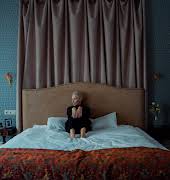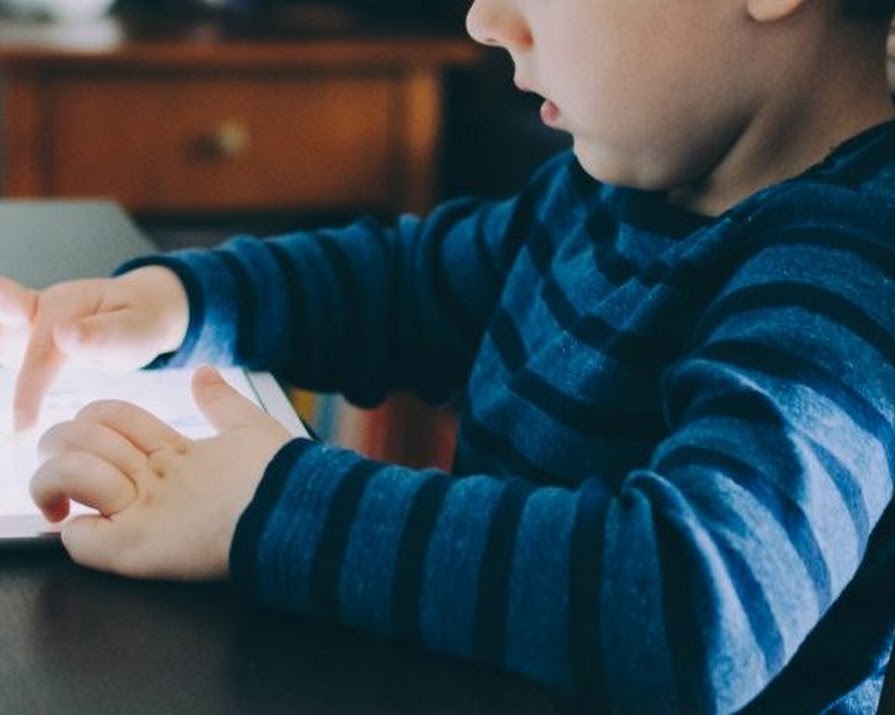By Jessie Collins
14th Nov 2017
14th Nov 2017
Parents who largely grew up in a generation where television was the biggest vice, are now finding themselves fighting a war on multiple fronts, with even more addictive modes of viewing readily available. Suddenly TV, says Jessie Collins, has become the least of our problems.
“Never before was there in the hands of men an instrument so powerful to influence the thoughts and actions of the multitude.” So said Eamon De Valera in his first address on Irish television. He was of course referring to the medium he was appearing on, and he knew the power of propaganda tool when he saw it. Yet it seems almost quaint now, the family all huddled round a TV set for the odd presidential address and some occasional family viewing.
Speed up to 2017, and viewing’s in overdrive, according to the latest ESRI Growing Up in Ireland report. Typical screen time on a weekday for seven and eight year-olds was reported to be one to two hours, not too concerning you think, but this increased to over three hours each day at the weekend. Boys had substantially more screen time than girls with 14 per cent of boys and 10 per cent of girls spending more than three hours at a screen on a typical weekday. On a typical day at the weekend, 51 per cent of boys and 39 per cent of girls had more than three hours of screen time.
Just like your sugar intake, how much screen time your kid consumes is informed by your socio-economic background. The report found that almost a quarter of seven and eight-year-olds whose mothers have not progressed beyond the Junior Certificate are viewing screens for more than three hours on any weekday. But not just how much you consume, but what you consume that is also at stake.
Last week James Bridle, a campaigning technology-focused artist and writer, wrote an incredible piece on the dark forces at play on YouTube which through its own algorithms is letting this low-grade, disturbing content make its way into the supposedly kid-protected channels. Bridle accused the video streaming service of violence against children, and has shone a light on what many parents know to be true. YouTube is anything but benevolent.
Kids can be sucked in with a seemingly harmless Peppa Pig compilation, but quickly find themselves down a wormhole of violent pastiche pieces. As Bridle points out, stuff like “Peppa Pig Crying at the Dentist Doctor Pull Teeth!” which sees a pirate Peppa Pig episode in which “she is basically tortured, before turning into a series of Iron Man robots and performing the Learn Colours dance” is just a click away.
All parents are familiar with this stuff, which just goes to show the proliferation of it. And the negative effect content can have can be instantaneous, with aggressive and violent being immediately aped. We all have I think, mixed feelings about introducing our kids to technology and screens in the first place. You try and hold off, and then you cave; if you’ve more then one kid, they are more likely exposed at an early age no matter what you do. I think all parents feel that guilt of having to park the kids in front of the TV in order to just get something done, increasingly that can be in order to access a screen yourself.
There are so many factors playing into this, from our modern working habits, to our increased isolation in western parenting, we don’t have a community of people in and out of our houses or doors, we don’t let our kids play on the street, we drive them here and there, and increasingly all the socialisation is hot-housed and managed. We live further apart from our families, so our extended immediate connections are not readily available. Parenting was never meant to be carried out in isolation, for one, it’s too boring, and two, kids mostly need to be around a bunch of other kids.
But all of this has resulted in parents now fighting a war on multiple fronts, from the amount of screen time kids consume to the kind of content they are getting exposed to outside of the traditional TV format. And it is too much for most of us. It is difficult enough for parents to manage the basic incendiary issues, getting your kids dressed, making sure they eat, and eat well, doing homework, monitoring their sugar intake. We cannot, particularly in today’s pressurised economy, be the only guardians of content in this space, and targeting kids in this way should be highlighted as a form of abuse, pure and simple.
Even with that, what are the kind of restrictions can you introduce? It may be as simple as getting off our own devices, first and foremost. I recently lost my iPad (extremely annoying for me) at a time when my four-year-old had just started to get hooked on it. I decided this was meant to be and to not get another one. The genius of its design, its pure simplicity, meant it was so addictive and accessible to her I could see where we were headed. I don’t want to go there yet.
She is not really allowed use my phone, because again, it is just so addictive. When she has, I see her craning her neck in a kind of tortured pose, burrowed into the screen in a zombie state. She’d prefer to watch things on my phone over the TV, which for me beggars belief, but it’s about control and ease of use. She can’t really work the remote,thank god. It is a truly crazy and strange state of modern parenting that to see your child sprawled out relaxed in front of the TV, hopefully watching something as innocuous as CBBBs (someone please televise Sesame Street here!) is a welcome relief, and the least of your problems.
And if we didn’t need more proof, then look at the creators of the technology. It was recently flagged again that Steve Jobs didn’t let his kids use the iPad. If the architects don’t let their own kids live in the houses they have built for yours, then why would you?
Three ways to limit screen time
Screen time is only for weekends. It’s the halfway approach to the full jettisoning of the TV and screens altogether, and still a reasonably hardcore approach as there is going to be a period of cold turkey to be endured. But it often can result in a calmer home-life, reigniting the reading bug, longer dinners together and earlier bedtime. Win Win.
Stay out till dark. Might sound a bit crazy, and also difficult in this country but it is one of the simplest approaches. Staying out til dark, filling up the hours with as many other activities as you can will naturally limit the time your kids are at home and getting that itch to watch.
Set conditions. TV only gets turned on after chores are done, homework completed, reading and playtime have all been part of the day’s activities.






















